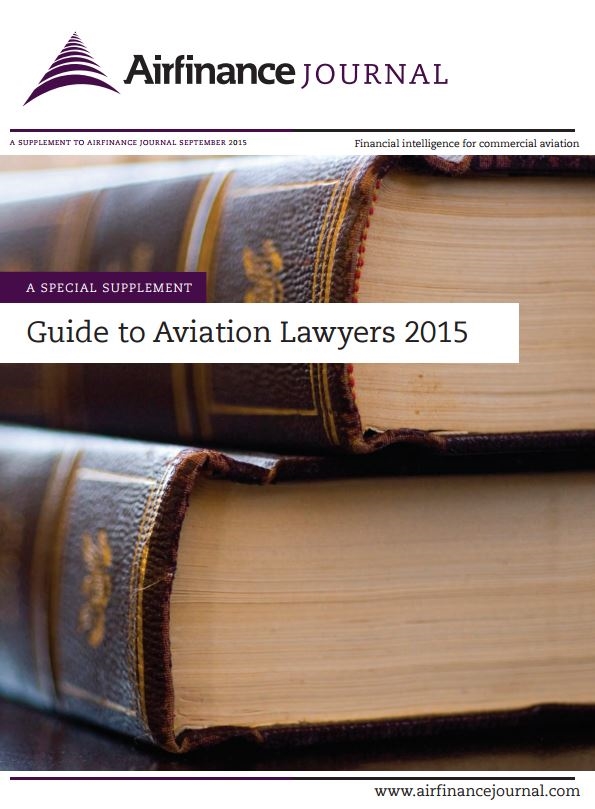Lawyers Guide 2015
Cape Town isn’t everything
Investors like the Cape Town Convention, and for obvious reasons. The treaty is designed to help creditors repossess their aircraft more easily from airlines. The convention emulates a lot of the US bankruptcy laws.
For many aviation investors, the Cape Town Convention offers a familiar piece of regulation when considering potential aircraft investments outside of North America. It is no accident that practically all of the non-US airlines that have used enhanced equipment trust certificates (EETCs) have relied on Cape Town.
Bankers state that investor are much more likely to accept a EETC if the issuing airline is based in a country that has ratified the treaty. Some lawyers privately confide that Turkish Airlines may have struggled even to issue its debut EETC this year if Turkey had not ratified the treaty in 2011.
But how well deserved is the Cape Town Convention’s reputation among investors? Investors may relish the treaty but lessors, who have to repossess the aircraft, have a starkly different view about its strength.
An academic exercise?
Lessors state they pay little, or no, heed to the Cape Town Convention. Instead, leasing firms prefer to rely on their traditional risk mitigation strategies to help them repossess aircraft. They argue that no lessor is going to agree to rent out aircraft to a new country simply because it has ratified Cape Town. “Investors love it, but how many of them have repossessed an airplane?” queries one US lessor. Lessors distrust the Cape Town Convention because there is no international body able to enforce it. In addition, there is little evidence to support its effectiveness. Lessors argue that the treaty’s one test case to date has been SpiceJet, but most of the lessors involved in that deal had long delays before getting their aircraft back. One lessor summed up the treaty by saying it was at best “a great academic exercise in bureaucratic red tape”.
Lawyers have a slightly different view. They argue that as there are so few court cases it will take years to assess the full impact of the convention. Part of the problem is that most repossessions do not go to trial. Most are simply negotiated. When an aircraft repossession does go to trial, it represents a serious breakdown of the commercial relationship between the bank/lessor and the airline. By the time it reaches court a repossession will have cost a bank or lessor hundreds of thousands of dollars on their non-performing asset.
It is within these fraught arenas where the treaty is being tested.
Lawyers argue the Cape Town Convention confers a significant advantage to any creditor wanting to repossess an aircraft, especially if it goes to court. If an aircraft is disputed, the presence of the treaty at least means it is much more likely the creditor will eventually get its aircraft back, and have a chance of recovering some return.
It is hard to assess fully the impact of the Cape Town Convention yet. SpiceJet gave a mixed signal to the aviation finance community, but there were signs that India acknowledged the priority of the treaty over local laws. The case also highlights the danger of relying too heavily on Cape Town as an investor. The treaty cannot offer any guarantee that the aircraft will be returned promptly.
The Cape Town Convention is changing laws all over the world for the better, and the work that the Aviation Working Group is doing should be encouraged. However, the best advice for investors is to check the airlines and lessors involved. A good lessor typically relies on the following to repossess aircraft: a cash security deposit from the airline, maintenance reserves, and a strong commercial relationship with the carrier that goes beyond just one asset. With this in place the odds of repossessing an aircraft, and ensuring a return on the asset, are much better.
DICKON HARRIS,
Editor,
Airfinance Journal
